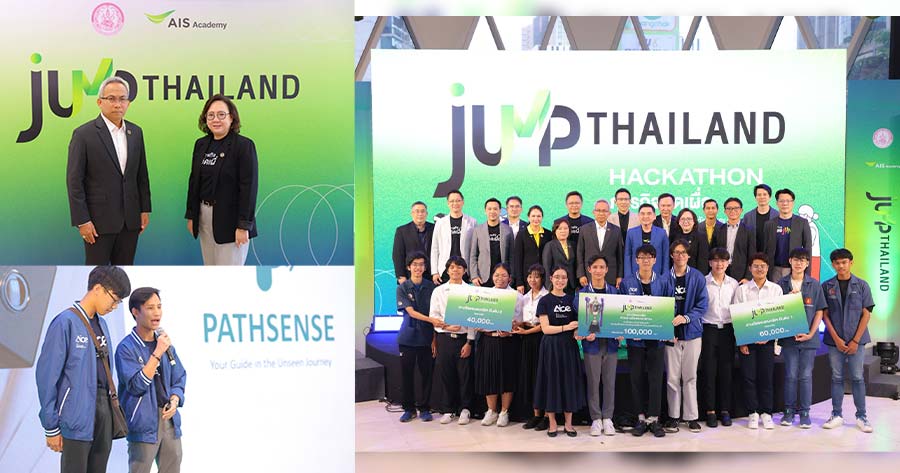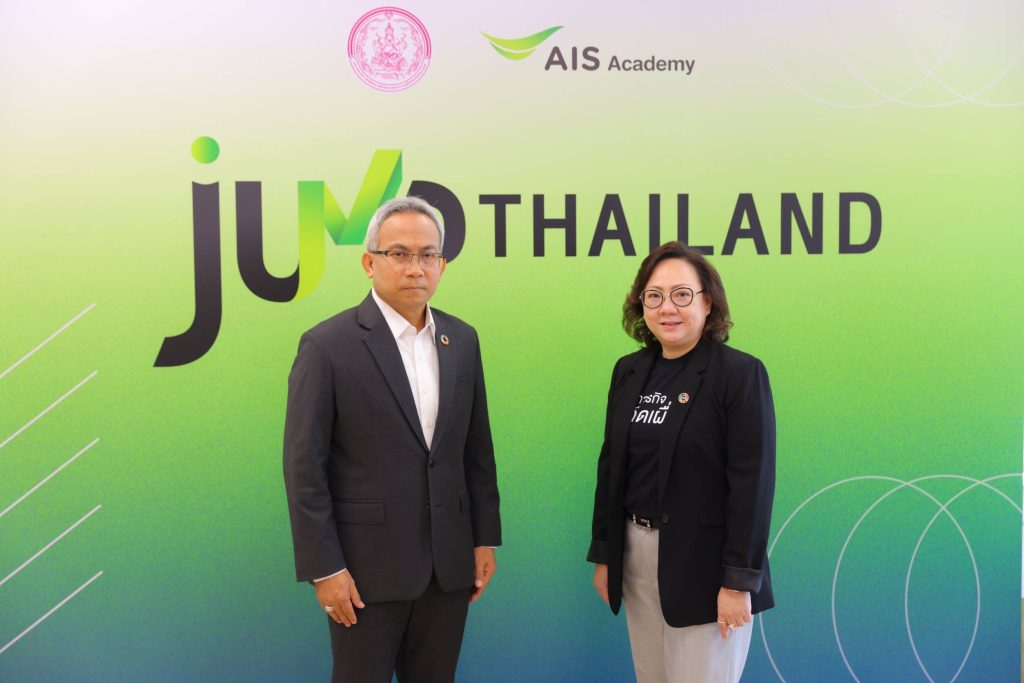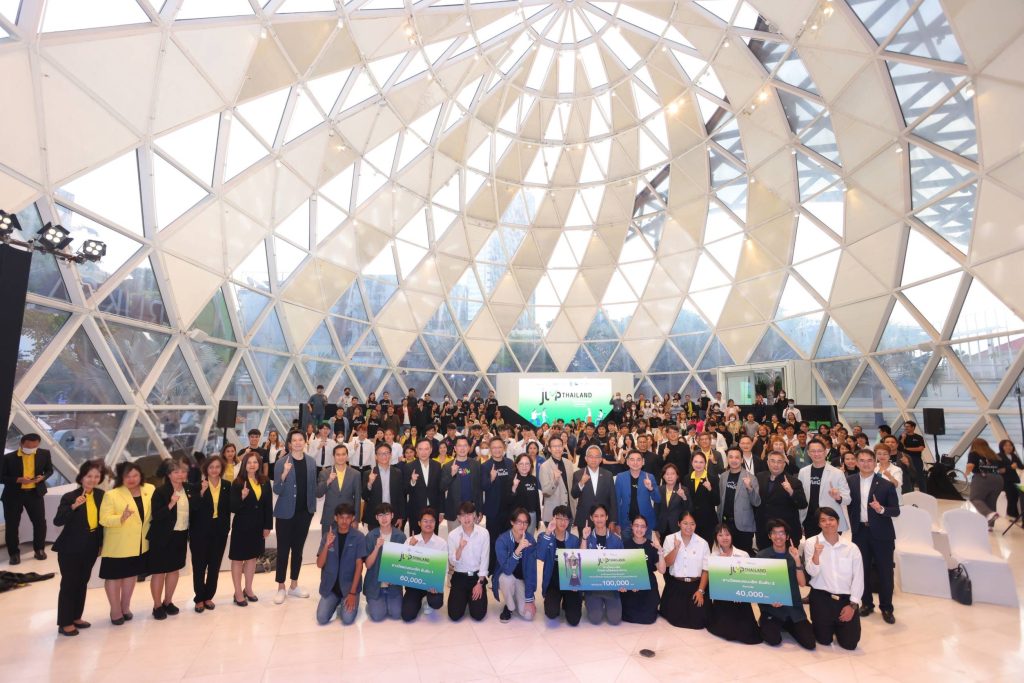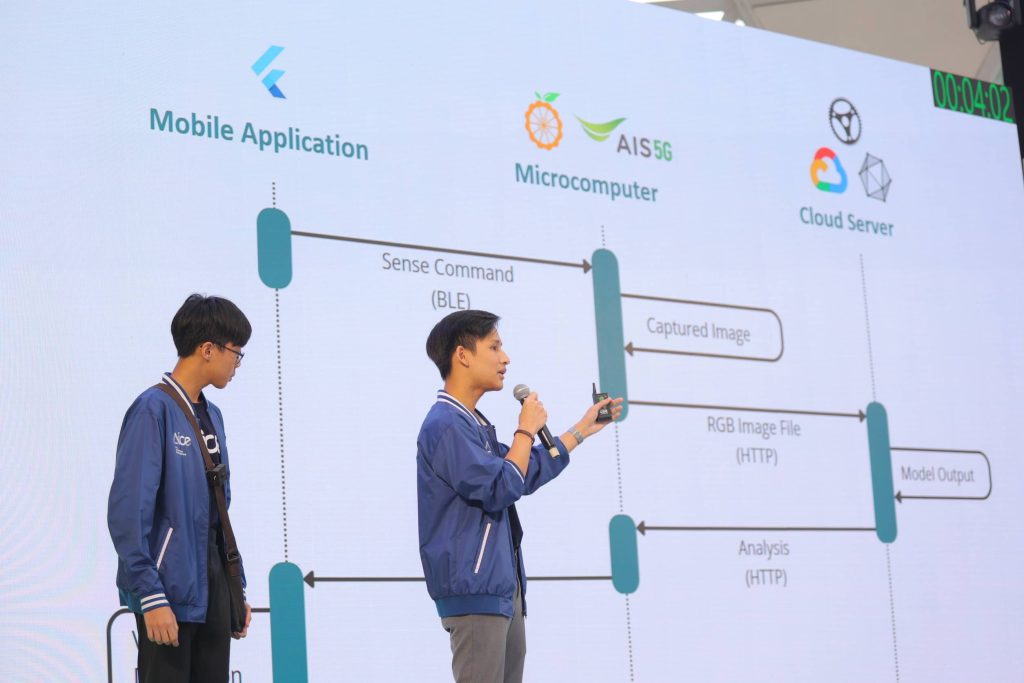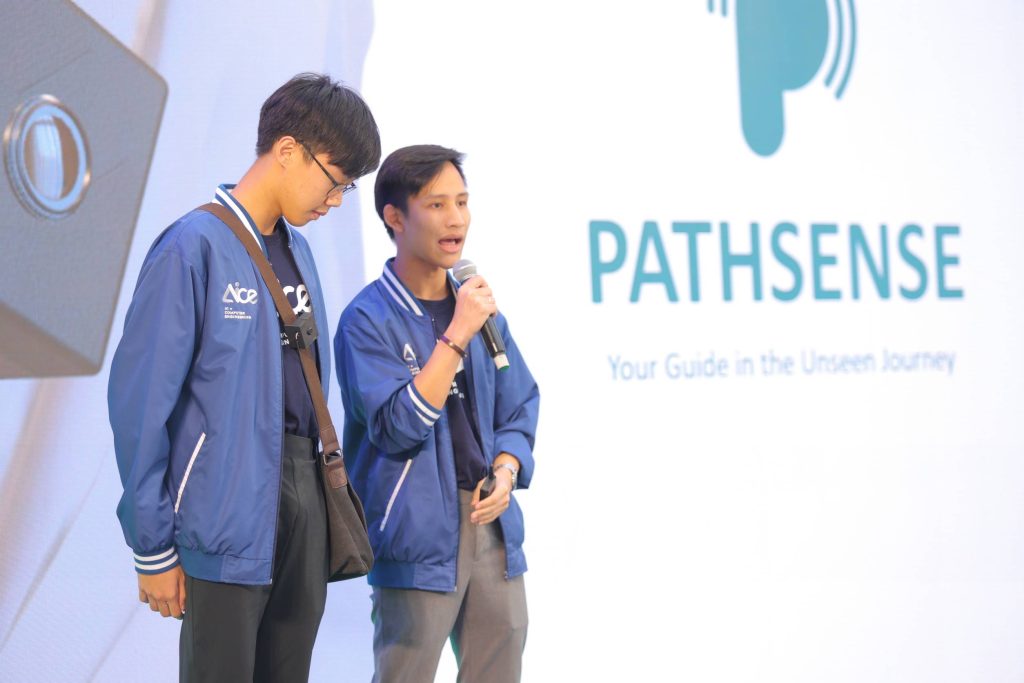Mr. Anukul Pidkaew, Permanent Secretary of the Ministry of Social Development and Human Security, presided over the award ceremony for the winners of the “JUMP THAILAND HACKATHON 2024” with the theme “How can we use digital technology to improve the quality of life for the elderly and people with disabilities?” This event emphasizes the mission of inclusive thinking, underscoring that innovation is an opportunity to create equality for Thais. The winners were announced, with the champion team receiving the royal trophy from Her Royal Highness Princess Maha Chakri Sirindhorn and a cash prize of 100,000 baht. The winning team is PATHSENSE, followed by Autism in second place, and Lan Ma in third place. Besides receiving a combined prize value of 200,000 baht, the winners will have the opportunity to work with AIS after graduation and develop their projects in collaboration with the Ministry of Social Development and Human Security.
Mr. Anukul stated, “Currently, we are facing a ‘population crisis’ with changes in Thailand’s demographic structure. The birth rate is declining, and the working-age population bears an increasing burden of care. Thailand has become a fully aged society with 13.06 million elderly, accounting for 20% of the total population. The Ministry of Social Development and Human Security has implemented the 5×5 policy to address this crisis, which includes: 1) Empowering the working-age population, 2) Enhancing the quality and productivity of children and youth, 3) Empowering the elderly, 4) Increasing opportunities and enhancing the value of people with disabilities, and 5) Creating a suitable ecosystem for family security. The collaboration between the Ministry and AIS plays a significant role in driving the 5×5 policy by developing creative ideas and innovations to improve the quality of life for the elderly and people with disabilities, facilitating their ability to live comfortably and equitably with others.”
The Ministry believes that the ideas and innovations from young people in this project will greatly benefit if further developed into tools to sustainably promote and enhance the quality of life for the elderly and people with disabilities. This includes leveraging technology to facilitate and enhance their living potential, as well as designing innovations to support the work of relevant personnel, providing efficient tools that can quickly, accurately, and effectively meet the needs of the public.
Mr. Anukul added, “Congratulations to all 15 teams that made it to this round. They are a group of young individuals with great potential. I am delighted to see young people having a platform to showcase their creativity, especially when it brings significant benefits to the disabled and elderly, who are close to all of us.”
Ms. Kantima added, “After launching the JUMP THAILAND HACKATHON 2024 with the theme ‘How can we use digital technology to improve the quality of life for the elderly and people with disabilities?’ in collaboration with the Ministry of Social Development and Human Security, many students have shown great interest in presenting their ideas. When AIS staff joined to help develop these ideas by integrating digital technology and platforms, we arrived at 15 interesting ideas today, particularly in terms of extending these ideas to enhance the quality of life for people with disabilities and the elderly effectively.”
“AIS believes in the potential of young people with digital skills and public spirit. ‘Jump Thailand’ has been an initiative by AIS Academy since 2018 to promote potential and knowledge for Thais. This time, we provided a platform for young people, students, and AIS staff to present various projects using digital technology and innovation to benefit society, reduce inequality, and enhance the quality of life. It’s inspiring to see the capabilities of students in creating innovations to improve and develop the quality of life for vulnerable groups. We believe that every small matchstick can ignite bright ideas, inspire thoughtfulness, and contribute to the nation through innovative thinking, skills, knowledge, and new opportunities. This can lead to sustainable development of quality of life and social problem-solving. We believe that the 15 ideas from this project will inspire change in the mechanisms of public care through innovation, knowledge, and new opportunities, leading to sustainable quality of life improvement and social problem-solving.”
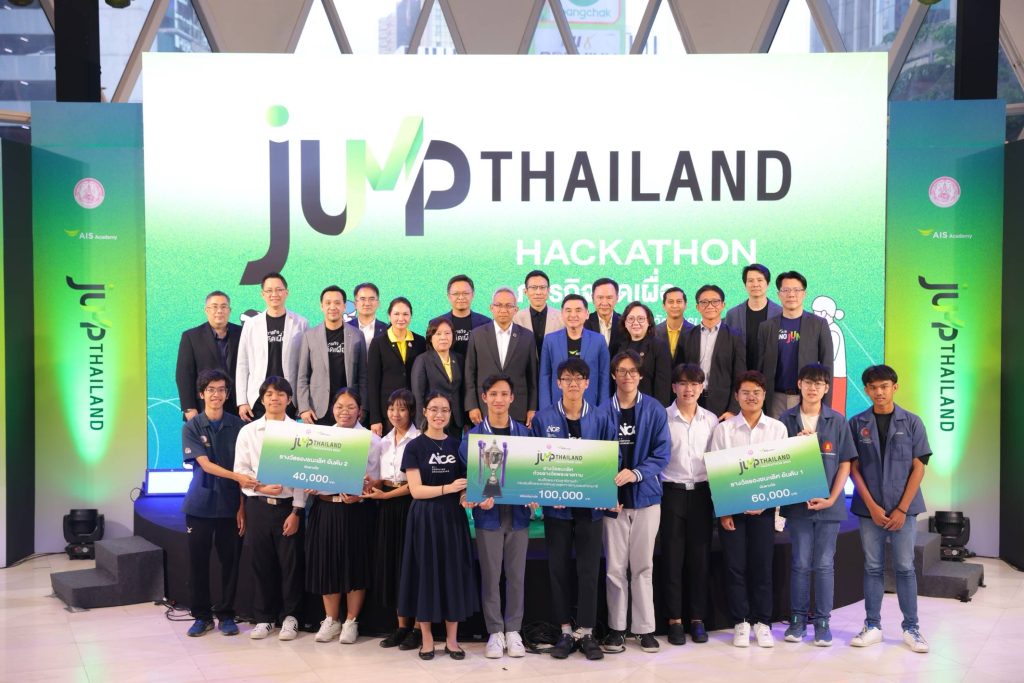
The three awarded teams are:
1st Prize: Team PathSense from CMKL University developed an innovation to help people with disabilities live independently through a shoulder bag equipped with an AI camera. The camera can detect objects and obstacles such as stairs, doors, walls, and more in front of the wearer and notify them through headphones or phone speakers.
2nd Prize: Team AUTISM from Chulalongkorn University, Mahidol University, and Silpakorn University developed a communication platform for people with Autism Spectrum Disorder (ASD) to create employment opportunities alongside therapy. The platform integrates AI to adapt communication among autistic individuals and between autistic individuals and the general public effectively.
3rd Prize: Team Lan Ma from Thammasat University and Srinakharinwirot University developed a fall-detection belt with an airbag activation feature that contacts relatives or ambulances via LINE OA’s DevioBeacon Cellular signal.
“All businesses will struggle to grow sustainably if external society faces challenges. AIS believes in growth through collaboration and public spirit. The ‘Mission Thinking’ project opens up opportunities for employees to share knowledge, create jobs with the public, and work with the government to develop society. We thank the Ministry of Social Development and Human Security for allowing AIS to work together in helping the public. We will continue this commitment, as this project is not just a competition to measure the capabilities of students interested in innovation, but a model project that will create societal change, enhancing the quality of life for the elderly and people with disabilities to sustainably care for themselves.”

